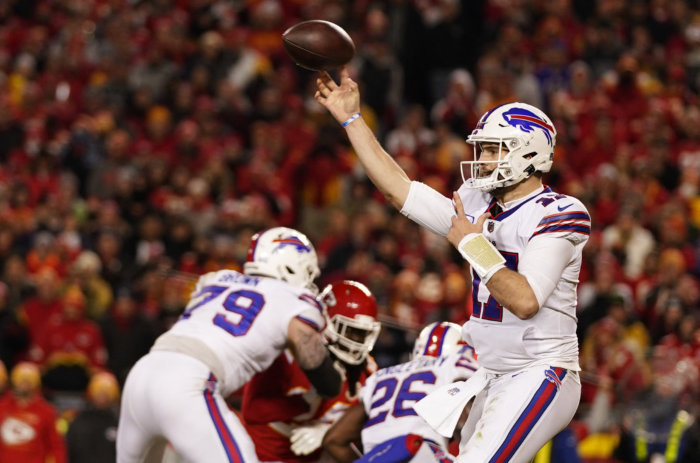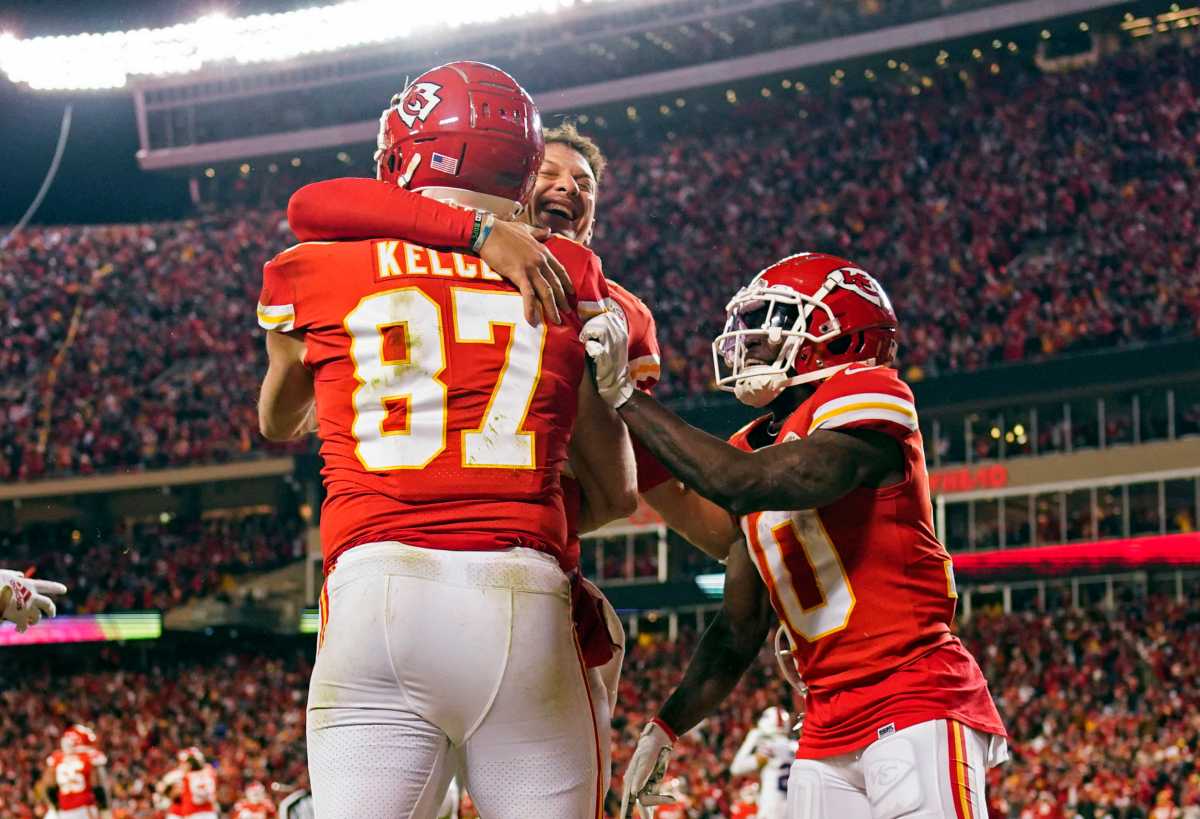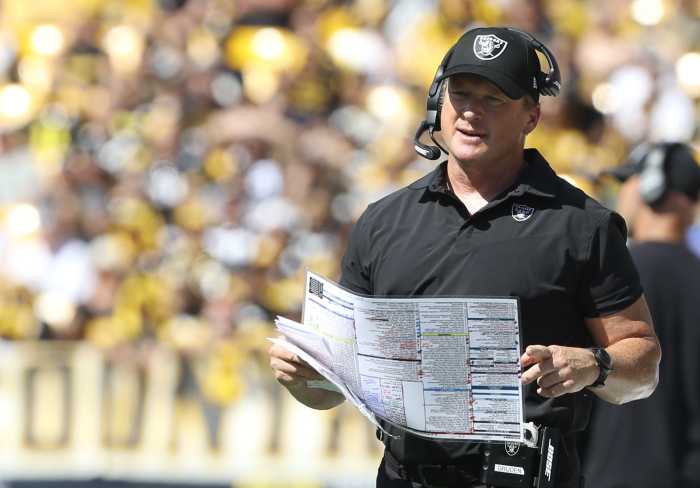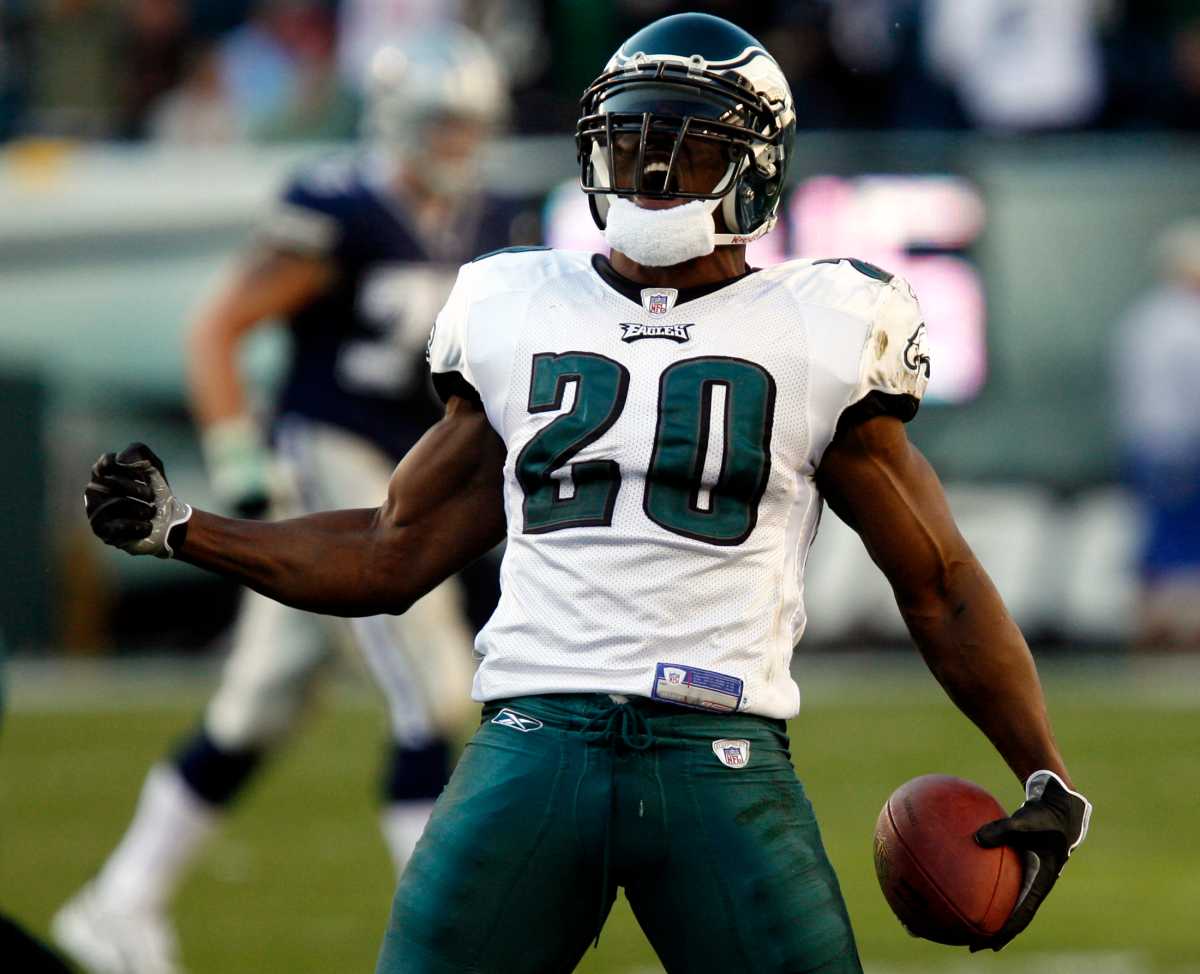A game for the ages in the AFC Divisional Round on Sunday night in Kansas City between the Chiefs and Buffalo Bills deserved the thrill of extra time but instead was sentenced to the ridiculousness that is the NFL overtime rules.
A mind-boggling 25 points were scored, prompting three lead changes in the final two minutes of regulation, including a Chiefs game-tying field goal as time expired to knot the score at 36 apiece after the Bills scored the go-ahead touchdown with just 13 seconds remaining.
Bills quarterback Josh Allen and Chiefs star passer Patrick Mahomes traded highlight-reel-worthy plays for jaw-dropping sequences.
Down 26-21, Allen found Gabriel Davis for a third time in the end zone with 1:54 to go in regulation on a 4th-and-13 and with the Bills’ season on the line. The ensuing circus two-point conversion to Stefon Diggs in the back of the end zone put the visitors up 29-26.
Mahomes and the Chiefs responded with a five-play, 75-yard drive that took just 52 seconds, punctuated by a 64-yard catch-and-run touchdown by Tyreek Hill with 1:02 left.
Allen once again rose to the call, though, and drove his Bills 75 yards in three fewer seconds than the Chiefs just did — finding a wide-open Davis for a playoff-record fourth touchdown to take the lead with 13 seconds to go.
But the Bills opted not to squib kick it, giving all 13 seconds to Mahomes, and it came back to haunt them. The Chiefs ate up 44 yards on two plays to set up Harrison Butker’s game-tying 49-yard field goal to set up overtime.
Again, a result that this game deserved. The problem is that an archaic, asinine rulebook dictating the proceedings of the extra time once again put a damper on the benchmark matchup.
The Chiefs won the coin toss and six plays later, the game was over — Mahomes hitting tight end Travis Kelce in the back corner of the end zone to send Kansas City to a fourth-straight AFC Championship Game with a 42-36 victory.
Allen, who threw for 329 yards and four scores, did not get to see the ball at all in overtime, providing another example of how the NFL has to change its overtime rules for the playoffs.
A game of such magnitude, of such excitement, of such proportions, was ultimately decided by a coin toss. Because if the Bills got the ball first in overtime, they likely would not have been stopped either and it would have been them — still unfairly — heading to the conference title game.

“The rules are what they are,’’ Allen said after the game. “I can’t really complain about it because if it happened to us, we’d be out there celebrating like [the Chiefs] did.’’
It’s only fair that in the playoffs, each team should at least get the ball once in the overtime period. The league can even go as far as playing out the entire 15-minute frame to build even more drama.
However, taking a page from college football’s playbook wouldn’t be the worst idea, either. Regardless of what a team does on their first possession — any type of score or not — the opposing side gets a chance to rebut.
That, at least, provides more of a satisfactory ending rather than putting a majority of the overtime emphasis on a coin toss.
A version of this article first appeared on AMNY.com






























